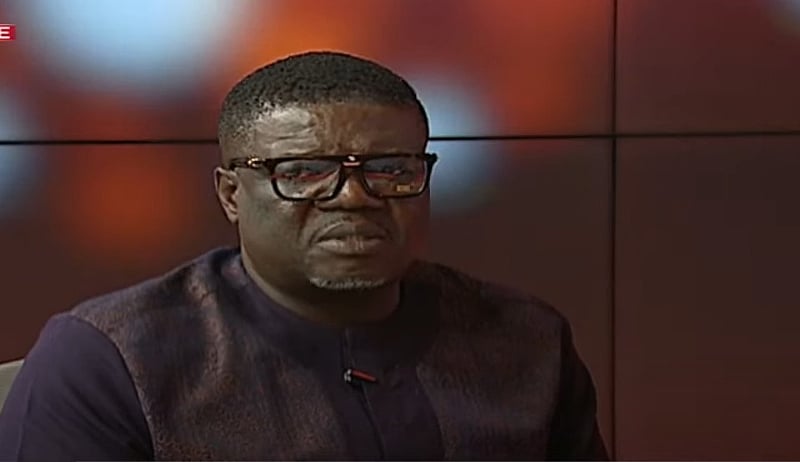Rockson-Nelson Dafeamekpor, Member of Parliament for South Dayi, has emphasized the importance of politicians maintaining sensitivity to public perception, particularly regarding their conduct in public spaces. He acknowledges the immense pressure placed upon them by constituents who frequently seek assistance with various financial burdens, including school fees, hospital bills, utility payments, and funeral expenses. While acknowledging the necessity of meeting these demands, Dafeamekpor stresses the importance of discretion and sensitivity in how such assistance is provided, especially in public settings. He advises his colleagues to be mindful of appearances and to consider discreet methods like envelopes when offering financial aid, to avoid negative public interpretations. Dafeamekpor’s comments were prompted by a recent controversy involving Sammy Gyamfi, CEO of the Gold Board (Goldbod), and his interaction with a controversial prophetess, Nana Agradaa.
The controversy arose from a video depicting Gyamfi gifting “fuel money” to Nana Agradaa, an act that triggered widespread criticism and calls for presidential sanctions against Gyamfi for potentially violating the Code of Conduct for state appointees. The public outcry stemmed from the perception of impropriety, with many questioning the nature of the interaction and the use of public resources. The incident quickly gained traction on social media, fueling the negative public sentiment. Within 24 hours of the video’s viral spread, Gyamfi issued a public apology, characterizing his actions as a “private act of kindness” that was not meant for public dissemination. He sought to mitigate the damage by framing the gesture as a personal, rather than official, act, implying no misuse of public funds.
President Mahama subsequently pardoned Gyamfi, opting against further punitive action while issuing a cautionary reminder about future conduct. This decision, while welcomed by some, has sparked further debate about the implications of holding public officials accountable for their actions, particularly in the context of perceived ethical breaches. The President’s pardon, while seen by some as an act of leniency, underscores the complex considerations involved in balancing accountability with the potential for politically motivated accusations. Dafeamekpor expressed his support for President Mahama’s decision to pardon Gyamfi, highlighting the potential repercussions of suspension or dismissal on the individual and the party. He framed the incident as a learning experience for all public servants, emphasizing the need for careful consideration of actions and their potential public interpretations, especially in the context of a politically charged environment.
Dafeamekpor urged members of his own party, the National Democratic Congress (NDC), to take note of the incident and to view it as a valuable lesson. He underscored the inherent risks faced by public officials, who are constantly subject to public scrutiny and judgment, and emphasized the need for caution and circumspection in all actions. He portrayed Gyamfi’s situation as a cautionary tale, demonstrating the rapid escalation of public perception and the potential for unintended consequences, even when actions are well-intentioned. He framed the incident as an educational moment, particularly for younger politicians navigating the complexities of public life. Dafeamekpor’s emphasis on public perception underscores the increasingly significant role of optics in contemporary politics, where even seemingly innocuous actions can be magnified and misinterpreted, potentially leading to significant repercussions.
This incident highlights the precarious balance public officials must strike between fulfilling their duties, responding to constituent needs, and avoiding actions that could be perceived as inappropriate or unethical. The rapid dissemination of information through social media amplifies the scrutiny faced by public figures, demanding heightened vigilance and awareness of how actions might be interpreted in the digital sphere. The case of Sammy Gyamfi serves as a potent reminder of the importance of discretion, especially given the potential for public misinterpretations and the resulting political fallout. It underscores the need for a more comprehensive understanding of ethical guidelines and the potential pitfalls of engaging in actions that could be perceived as compromising, even when conducted with benevolent intentions.
The incident and its aftermath serve as a valuable case study for political discourse, prompting discussions about accountability, public perception, and the challenges of navigating public life in an era of heightened scrutiny. It highlights the complex dynamics between public officials and their constituents, the pressures they face, and the importance of maintaining transparency and avoiding even the appearance of impropriety. Ultimately, the incident emphasizes the need for ongoing dialogue about ethical standards for public officials and the development of strategies for navigating the complexities of public service in a rapidly changing media landscape.














